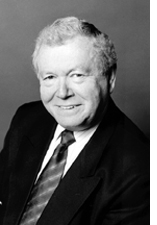By Rabbi Dow Marmur
 JERUSALEM–In the closing decades of the last century, the complaints I used to hear in Progressive/Reform/Liberal Judaism circles in Israel had to do with the dangers inherent in the secularization of the Jewish state. Religiously and politically liberal Jews were urged to articulate viable alternatives and create institutions to promote them.
JERUSALEM–In the closing decades of the last century, the complaints I used to hear in Progressive/Reform/Liberal Judaism circles in Israel had to do with the dangers inherent in the secularization of the Jewish state. Religiously and politically liberal Jews were urged to articulate viable alternatives and create institutions to promote them.
Though the secular challenge may still be there, it seems that the more immediate issue is how to stem the growth of Orthodox fanaticism, primarily in Israel but also in the Diaspora, manifest in the various sects of haredi Judaism and their cynical, ostensibly secular supporters. The knitted kippa is being ominously replaced by the black fedora.
One reason for the shift is that Socialism has been discredited. In Israel it has led to the pathetic decline of the Labour Party. It’s now part of the right-wing government coalition that consistently gives in to the Orthodox. Its few rebels who hope to replace Ehud Barak as chair with a person of principle and integrity are too feeble to be effective.
The attempts by the Reform movement in Israel and abroad to play politics – for which virtually all of us have neither the aptitude nor the sophistication – also reflect the shift. In the past, the primary aim of the Arzenu (Reform etc.) delegates to the World Zionist Organization (WZO) has been to seek an understanding with Labour. Today, the lines of communication seem to go in all directions, i.e., nowhere in particular. It appears that Arzenu even helped to elect an Orthodox Jew as the chair of the WZO, presumably as a tactical move which, like most tactical moves, sacrificed principles for imagined or real short-term gains, often rationalized in terms of financial benefits, however paltry.
At the same time, leaders of Reform Judaism in Israel seem to wish to make inroads into secular circles, especially as many of these have mercifully given up on atheism and are drawn to some form of Judaism, at times laced with Jewish as well as Oriental pop-mysticism. There’s much to suggest that Jewish religious seekers who haven’t embraced Orthodoxy in its most extreme – and at times virulent – form are now trying to create vague forms of “post-denominational” Judaism.
A salient aspect of what many call “spirituality” is that it’s conducted without the benefit of clergy. This means that conventional religious institutions, not least in the Diaspora, are under threat or already in decline. Rabbis may still be needed but more to lead private rituals than public services. Many Israeli rabbis already have to augment their meager salaries by conducting, for example, Bar/Bat Mitzvahs on demand.
The vacuum thus created provides further opportunities for haredim, especially if they manage to give the impression of doing outreach – like Chabad (Lubavitch) or even Aish Hatorah – to expand at the expense of both modern (once mainstream) Orthodoxy and Progressive/Liberal/Reform as well as Conservative Judaism. That’s how I read, for example, the relative lack of progress of Progressive Judaism in Israel.
The growth of often extreme Orthodoxy, especially in Israel, isn’t only a threat to the political fabric of contemporary Israel, about which much is being written at present – racist pronouncements by rabbis; state-sponsored measures to make conversion to Judaism contingent upon embracing staunch Orthodoxy; growing financial support and military exemption for unproductive young Jews who claim to be yeshiva students, etc. etc. – but also to mainstream Judaism everywhere as it has evolved in the post-Enlightenment era. We’re in for many changes, not necessarily for the better.
*
Rabbi Marmur is spiritual leader emeritus of Holy Blossom Temple in Toronto. He now divides his year between Canada and Israel.